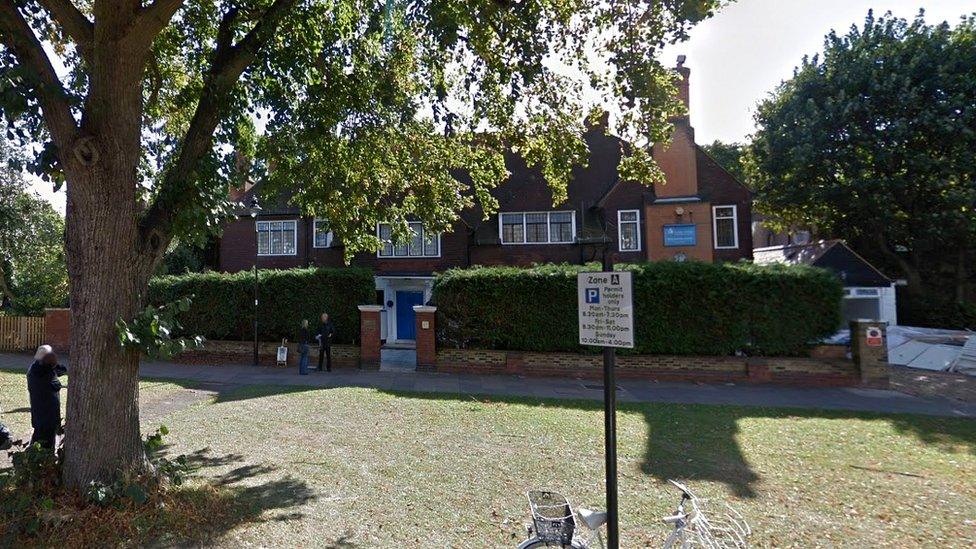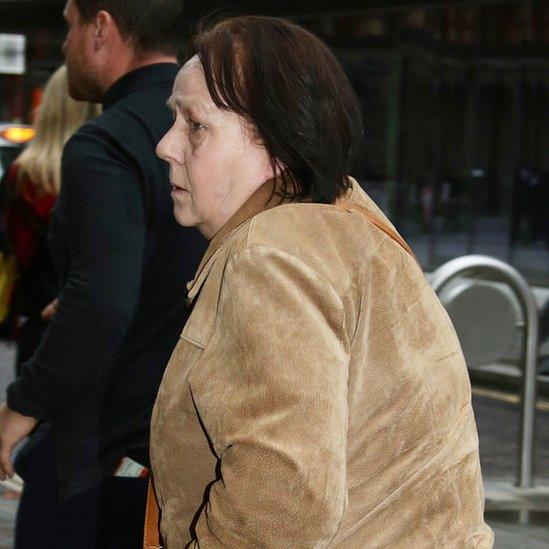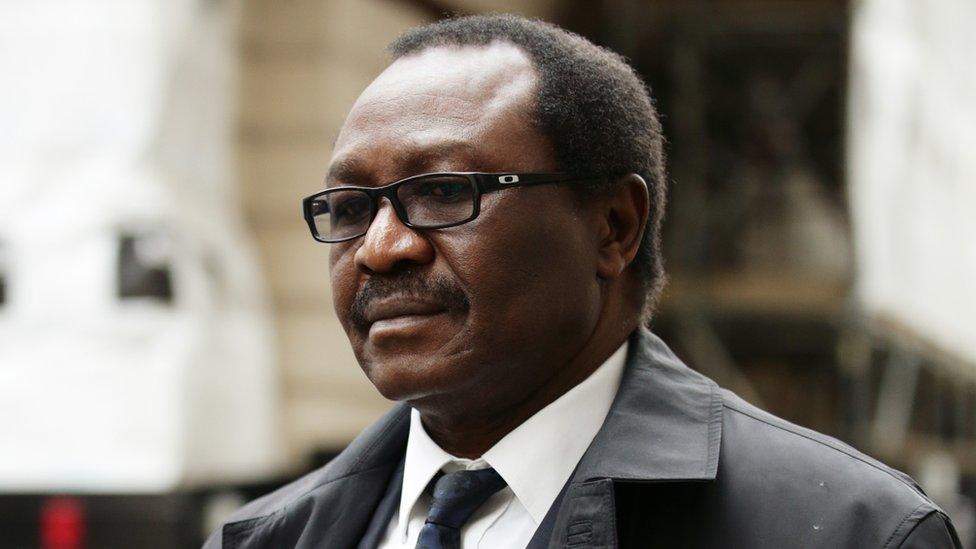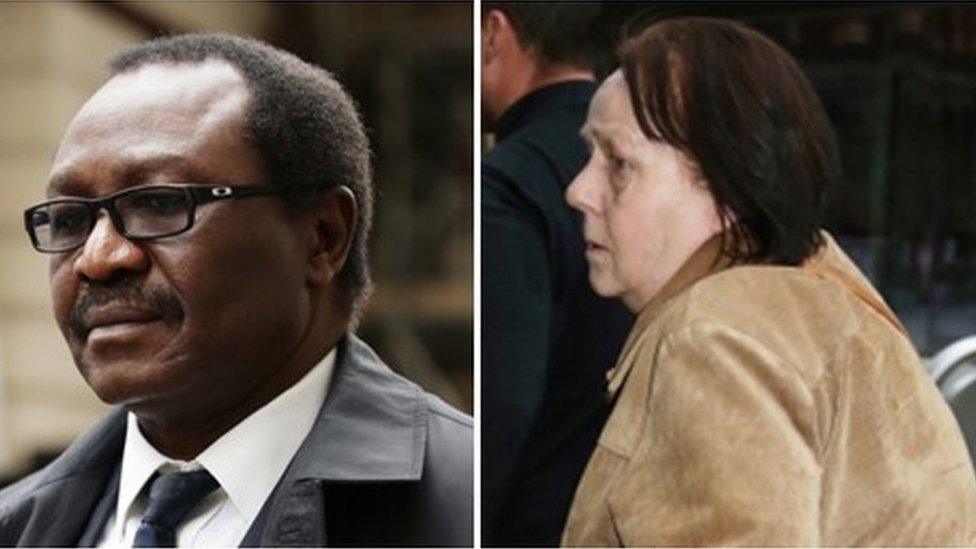Abortion death after 'repeated failures' at Ealing clinic
- Published

Aisha Chithira was discharged from the Marie Stopes clinic in Ealing despite vomiting, feeling dizzy and falling to the floor, a court heard
A woman who died hours after having an abortion was let down by the "repeated failures" of medics, an inquest found.
Aisha Chithira, 32, bled to death after the procedure at the Marie Stopes clinic in west London in January 2012.
Her doctor and two nurses were accused of manslaughter but charges were dropped in 2016.
Coroner Dr Sean Cummings said he could not return a verdict of neglect because he was not satisfied there had been a gross failure.
Ms Chithira was discharged from the Ealing clinic despite vomiting, feeling dizzy and falling to the floor, West London Coroner's Court heard.
Staff helped her into a taxi, telling her she could not stay overnight.

Margaret Miller, pictured, and Gemma Pullen were two nurses involved in Ms Chithira's care
The mother-of-one, who had travelled to England from Ireland to have the termination, suffered a tear to her uterus as the 22-week-old foetus was removed from her womb.
Observations taken by a nurse showed her blood pressure and pulse were normal.
This meant her symptoms were "difficult to diagnose" so "the severity was missed", Dr Cummings concluded.
She died later that day after catastrophic internal bleeding.
The court heard the procedure was made complex by Ms Chithira's history of non-cancerous growths around the womb called fibroids, while due to the late stage of the pregnancy other clinics had refused her.
She had to wait a month for a visa to travel to the UK after it became clear the abortion could not take place in Ireland.
Dr Adedayo Adedeji and nurses Gemma Pullen and Margaret Miller were initially all charged with manslaughter by gross negligence and a health and safety breach.
The case was dropped in 2016.

Dr Adedayo Adedeji and two nurses were accused of manslaughter, but charges were later dropped
Dr Cummings said Ms Chithira's death was a result of "the manifestation of a recognised complication of the procedure resulting in sometimes subtle and atypical symptoms and signs which were not appreciated as potentially sinister at the time".
"There were repeated failures of recording of observations by different clinicians involved in her care," he added.
Recording a narrative verdict, Dr Cummings said the case had been "catastrophic" for all those concerned.
Emma Doughty, a medical negligence lawyer representing Ms Chithira's family, said the death was "tragic and avoidable".
"It is crucial that lessons are learned to ensure a tragedy like this never happens again," she added.
A Marie Stopes spokesman said "significant steps" have been made since 2012 to improve processes such as making sure clients are fit for discharge.
- Published30 June 2016
